Know These Before You Dive
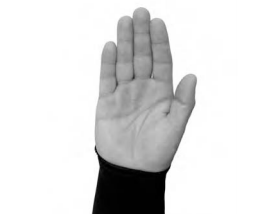
Common Scuba Diving Hand Signals
It is important to be able to communicate with both your fellow divers and those on the boat. The way to do this is with hand signals. Below are some common hand signals that may save someone’s life – maybe yours!
Regardless of the experience and knowledge of the divers involved, it is always prudent to review hand signals and their meanings prior to each dive so that no confusion occurs during the dive. Divers exchange hand signals to give each other instructions, provide information on the dive, and indicate their condition. Natural signals are those whose meaning is obvious in any language, such as shrugging the shoulders for “I don’t know,” nodding the head for “Yes,” shaking the head for “no” or pointing to a gauge to mean “What does it read?”
Following are some of the more common ones:

STOP:
Raise hand vertically, fingers together, palm facing the receiver.
May be followed by another signal indicating reason for stopping.
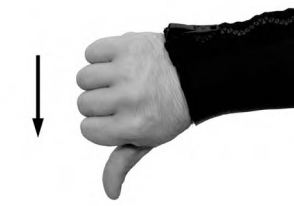
Go Down or I’m Going Down:
Make a fist with one hand, thumb extended downward.
Downward movement of the hand indicates direction of travel.
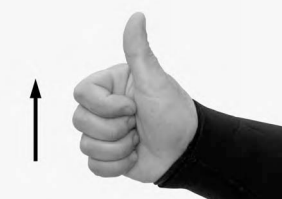
Go Up or I’m Going Up:
Make a fist with one hand, thumb extended upward.
Upward movement of the hand indicates direction of travel.
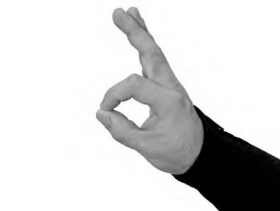
OK! or Are You OK?:
With thumb and forefinger make a circle, extending three remaining fingers if possible.
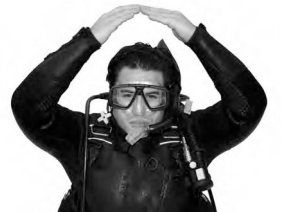
OK! or Are You OK? When on the surface:
Extend both arms overhead with fingertips
touching above head to make a large “O”
shape.
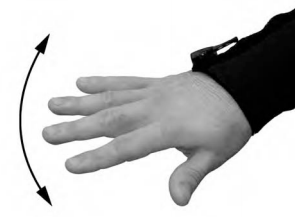
Something is Wrong:
With hand flat, palm down, fingers apart,
thumb sticking out, rock hand back and
forth on the axis of the forearm.
May be followed by another signal
indicating source of problem.
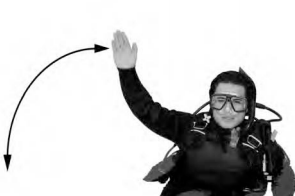
Distress or Help Me:
Wave hand quickly from a horizontal
position to a position overhead.
When in the horizontal position, hand may
strike the water’s surface.
For a PDF with these and additional hand signals click here.










